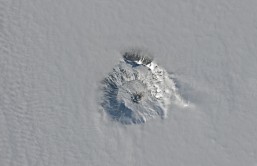Pollution has now reached the lakes as plastic substances invade freshwater life which in turn causes drinking water and agriculture concerns.
Researchers found that lakes are at risk of plastic pollution as much as oceans, which have been known to be a growing problem over the earlier years. "We have similar amounts of plastic particles in the sediment of the lake's ecosystem as we find in marine ecosystems," said lead researcher and University of Bayreuth Professor Christian Laforsch to BBC.
The scientists had conducted their research in a large lake in Italy, Lake Garda. They found that the samples of plastic found are at the same levels with those found in other oceans. There were large plastic sediments found in the lake. Around 1,000 bigger substances made of plastic and about 450 minute plastic sediments were found within a square meter area in the northern part of the shore.
The researchers were concerned of the impact of plastic waste on fish and other fresh water creatures in the lake. "What we show is that filter feeders and sediment feeders and organisms that feed on the surface layer of the lake, all swallow these plastic particles mistaking them for food," said Professor Laforsch.
The huge chunks of plastic make the water creatures choke when swallowed. The smaller plastic sediments may seem tiny but their effects are just as deadly. These tiny particles could be gulped down and result to tissue damage.
Plastics are composed of harmful chemicals that may be poisonous, cancerous and harmful to the endocrine system.
There were other studies that presented theories on fish and other sea creatures absorbing minute plastic particles in their systems. The scientists are concerned that this is not limited to oceans but is occurring in lakes as well, as discovered in Lake Garda.
According to Professor Laforsch, their samples in Bavaria are providing the same results and he believes that the problem could be prevalent in Europe and possibly across the globe.
The plastic pollution is caused by wastes from human consumption along the shore, boats, and landfills. Hopefully, something can be done to prevent plastic waste from reaching human water sources including lakes and the sea.
The study was published in the online journal Current Biology.








